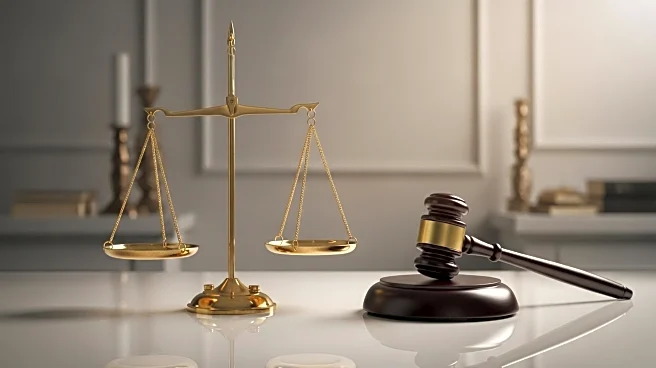What's Happening?
Faruqi & Faruqi, LLP, a national securities law firm, has announced a class action lawsuit against KBR, Inc. The lawsuit alleges that KBR and its executives violated federal securities laws by making false or misleading statements regarding the company's partnership with HomeSafe Alliance. The U.S. Department of Defense's Transportation Command had expressed concerns about HomeSafe's ability to fulfill the Global Household Goods Contract, which KBR allegedly failed to disclose. As a result, KBR's stock price fell significantly following the announcement of TRANSCOM's notice to terminate the contract. Investors who suffered losses exceeding $50,000 between May 6, 2025, and June 19, 2025, are encouraged to contact Faruqi & Faruqi to discuss their legal options.
Why It's Important?
The lawsuit against KBR highlights the critical importance of transparency and accurate disclosures in corporate communications, especially for publicly traded companies. Misleading statements can lead to significant financial losses for investors and damage the company's reputation. This case underscores the potential legal and financial repercussions for companies that fail to provide truthful information to their stakeholders. The outcome of this lawsuit could influence corporate governance practices and investor relations strategies across industries, emphasizing the need for compliance with securities laws.
What's Next?
Investors have until November 18, 2025, to seek the role of lead plaintiff in the class action lawsuit. The court will appoint the lead plaintiff, who will oversee the litigation on behalf of the class. The lawsuit may lead to financial recovery for affected investors if successful. Additionally, the case could prompt KBR to reassess its disclosure practices and improve transparency in its communications. Other companies may also take note of the legal risks associated with inadequate disclosures and adjust their practices accordingly.
Beyond the Headlines
This lawsuit may have broader implications for corporate accountability and investor protection. It highlights the ethical responsibility of companies to provide accurate information and the legal mechanisms available to investors to seek redress. The case could contribute to a shift in corporate culture towards greater transparency and accountability, potentially influencing regulatory policies and investor expectations in the long term.










